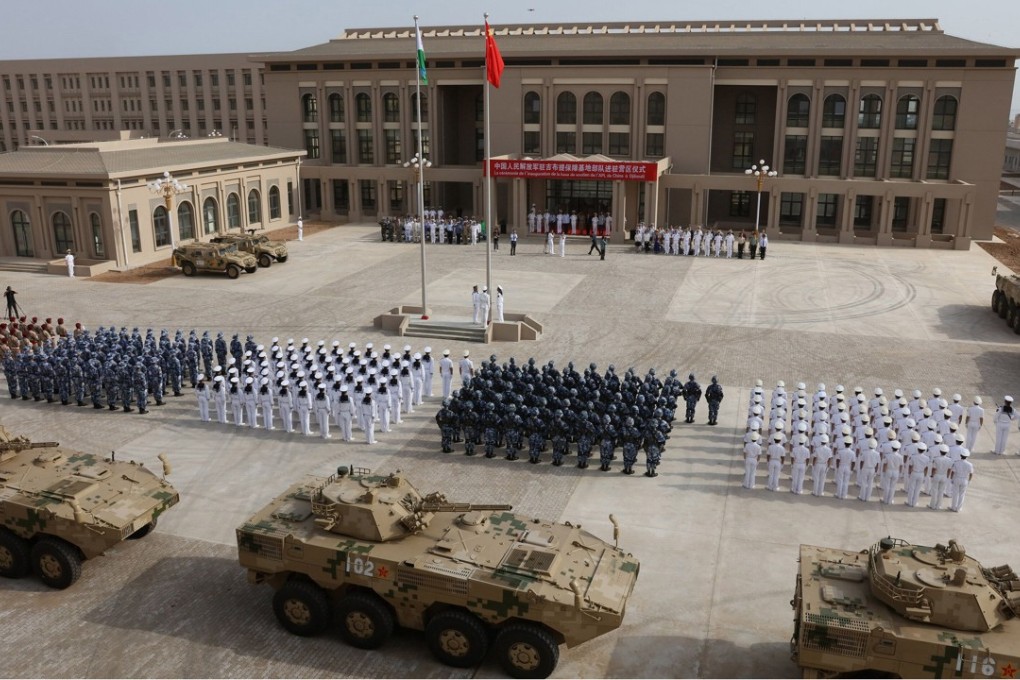China should accept its non-intervention policy has outlived its usefulness
Abhishek Parajuli says the formal opening of China’s first overseas military base in Djibouti is a good opportunity to acknowledge the inevitable shift, as the nation’s economic footprint widens and more of its workers are based overseas

This month, as Chinese soldiers switched on the lights in China’s first overseas military base in Djibouti, they marked a clear break with the nation’s non-intervention policy. And yet, China will deny any change. Beijing needs to acknowledge the change or risk harming its credibility.
The West will inevitably fear increasing Chinese interference but it, too, should urge Beijing to better manage this inescapable shift and channel its ambitions towards mutually beneficial ends.
China formally opens first overseas naval base in Djibouti
It is easy to see why China is reluctant to ditch the non-intervention policy: Beijing has in the past used it as a bargaining chip to attract autocrats constrained by Western conditions and as a smokescreen to deflect attention on domestic unrest. Its live-and-let-live policy painted the West as being self-righteous for criticising China and interfering in other emerging economies.
China needs to acknowledge the change or risk harming its credibility
But ditching the stance is in China’s interest. For one, its denials are now painful to hear. China has already repeatedly intervened to protect its oil interests in Sudan and South Sudan. And now there is the new base in Djibouti.
Secondly, domestic pressure for change is also set to mount. As armies of workers are sent around the world, often to conflict-prone areas, China will have to protect its citizens. That lesson was brought home by the evacuation of thousands from Libya during the Arab spring convulsions. More such missions will be the norm.
The West has a role to play in urging Beijing to become a more transparently active player. It has long bemoaned China’s unwillingness to push for better governance in emerging economies. Now, with China increasingly reliant on oil imports from fragile nations and production shifting to higher-end products that require patent protection, its interests are slowly realigning.
Chinese military base in Djibouti necessary to protect key trade routes linking Asia, Africa, the Middle East and Europe
Furthermore, the European migrant crisis has exposed the need for more global action in trouble spots across Africa, and China is now doing more under the auspices of the understaffed UN forces. Its participation in the anti-piracy efforts in the Gulf of Aden is further proof of its willingness to help secure global public goods like open sea lines of communications.